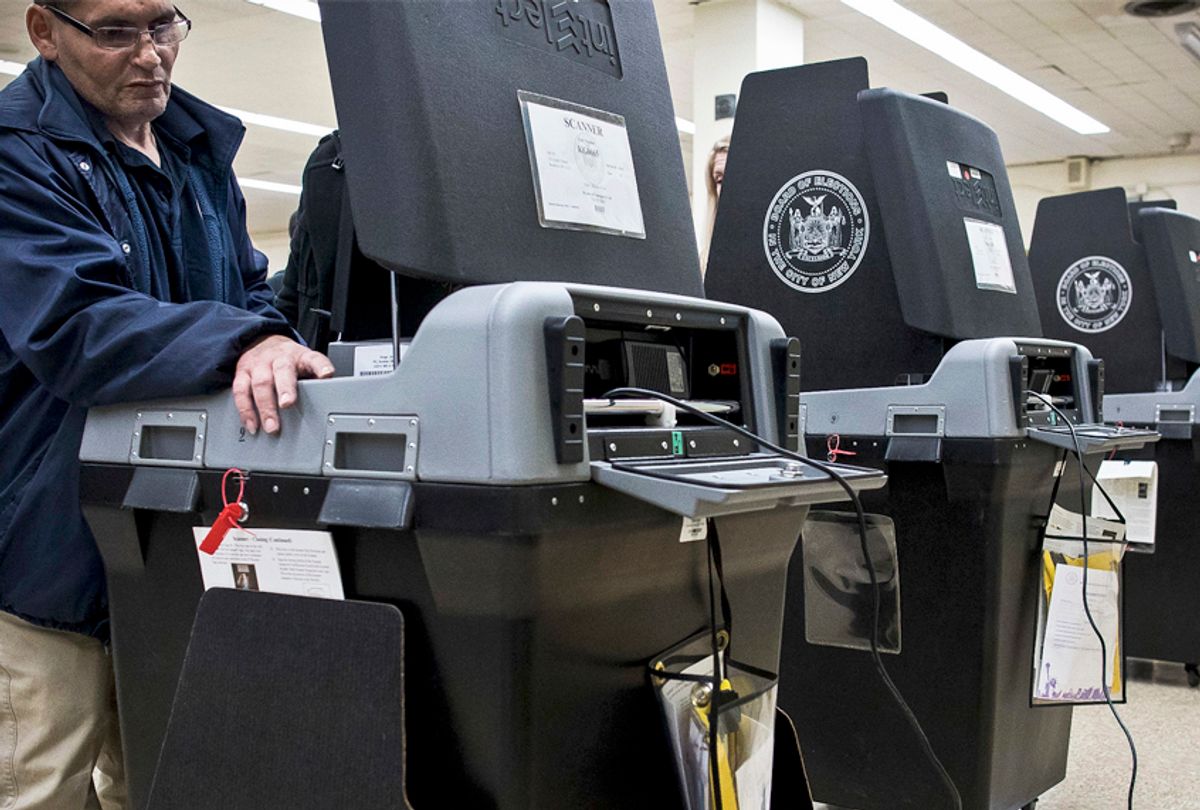Department of Homeland Security Secretary Kirstjen Nielsen recently assured voters that this midterm cycle is "going to be the most secure election we've ever had." But a new report reveals that hackers have attempted to breach U.S. election systems more than 160 times since August.
According to a federal election threats report obtained by The Boston Globe, the hacking attempts are similar to those used by Russia ahead of the 2016 election.
“To be clear, we have not attributed any of this activity to a nation-state, nor do we have any reason to believe it to be part of a broader campaign,” DHS spokesman Scott McConnell said in a statement to The Hill. “DHS and our state and local election partners are aware of the ongoing threats to election infrastructure and we continue to work every day to secure and increase the resilience of our nation’s elections.”
Interference has very clearly been on the minds of American voters and media outlets recently, with only a few days before the midterms. Only 21 states have requested a free Homeland Security election security check, per an ABC News report. This could be because states opt to conduct their own security checks, however, it's not clear on how in-depth those are, or which states have been proactive with changes.
While less than half of states have undergone security reviews for the election, nearly half of Americans polled by Morning Consult believe Russian election interference is likely — 70 percent of Democrats polled believe this while 25 percent of Republicans polled agree.
Already there have been charges of conspiracy filed against Russian agents in trying to interfere with the 2018 cycle through internet trolling.
The investigation into trolls and foreign people hacking or swaying American elections has been ongoing heavily since the 2016 election when it was found that Russia had interfered by formulating fake news stories and putting out false information opposing former Secretary of State Hillary Clinton and favoring then-presidential nominee Donald Trump.
Special Counsel Robert Mueller announced last year that Russian spies also were responsible for hacking the DNC.
This year, it seems, security has been on defense since campaigns announced their candidacies. With a month until the election it was announced that the Justice Department, FBI, DHS and Office of the Director of National Intelligence had concerns about Russian, Chinese, Iranian and other foreign actors, who had ongoing campaigns to influence American politics.
"These activities also may seek to influence voter perceptions and decision making in the 2018 and 2020 U.S. elections," a joint statement from the American intelligence departments said.
With the elections just days away, social media sites like Facebook have removed foreign trolls from posting content online and acting in "inauthentic behavior."
As the 2016 presidential election showed, the full scale of foreign interference is likely to be known only after the election takes place — if ever.



Shares